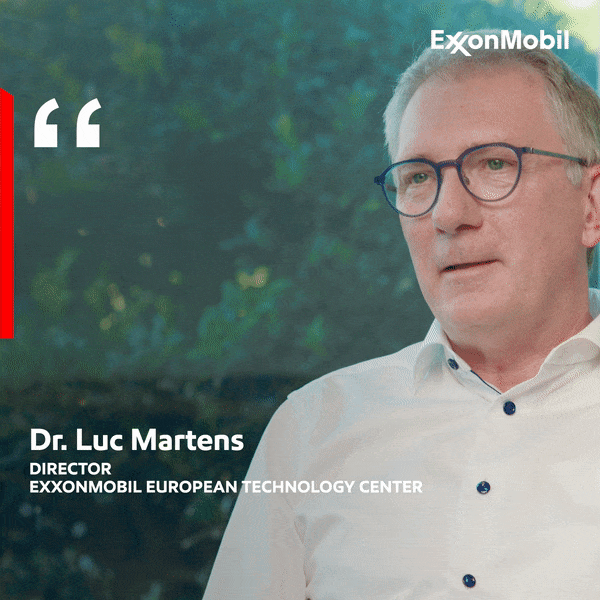3 min read
• May 22, 2024Developing lower-emission solutions through research and development
Key takeaways:
- Our European R&D hub is helping drive lower-emission alternatives, from recycling innovations to sustainable aviation fuel.
- Scientists at our European Technology Center (ETC) are helping create a new type of multi-layer plastic packaging, where more than 50% can be recycled.
- We’ve also developed a proprietary technology at the ETC– to make sustainable aviation fuel from renewable methanol.
3 min read
• May 22, 2024selected item
Research and development (R&D) is central to ExxonMobil; an integral part of our focus on lower-emission solutions and support for the energy transition. We employ thousands of scientists and operate research and technology centers around the world – including the European Technology Center (ETC) in Belgium.
For 55 years, the ETC has helped develop new technologies and innovative solutions across a range of areas, from polyethylene and other polymers to sustainable aviation fuel. “The European Technology Center has various research activities,” says Dr. Luc Martens, director of the ETC. “It’s about focusing on sustainability and thinking outside the box to improve existing products and develop new ones.” Hear more from Luc about the work of the ETC:
A diverse research portfolio
The ETC has long worked to improve the recyclability* of plastic, including food packaging. Such packaging is often challenging to mechanically recycle, as it’s typically made up of many layers of different kinds of plastic. It’s common for some, but not all layers, to consist of polyethylene and these multi-layer plastic structures are not well suited to mechanical recycling: a process that works best with a single polymer material.
Collaborating with six other companies, scientists at the ETC recently created a new type of plastic packaging. This was designed to replace multilayer barrier packaging – which provides a protective shield for the product but is difficult to recycle. While the new packaging features 14 different layers, 96% of the material is polyethylene – which helps make it easier to recycle. “Our team has proven that you can recycle more than 50% of it, using it in new applications, such as bags that contain heavy food,” Luc says. “That's a major advancement.”

Helping to reduce emissions from air travel has also been a recent focus. Together with colleagues in the U.S, ETC scientists developed a proprietary methanol-to-jet technology that enables the production of sustainable aviation fuel (SAF) using renewable methanol as a feedstock.
ExxonMobil expects this technology to generate a higher yield of jet fuel than other processes for the same feedstock. This comes at a time when, Luc explains, “the world will need a major ramp up of SAF supplies in order for the aviation industry to achieve its goal of net-zero carbon emissions by 2050”.
Collaboration is central to the ETC’s work. The center not only joins forces with other companies, but also with academic institutions and research facilities across Europe – including on recruitment. “We are in the heart of Europe, well-connected to universities and research institutes, and that network is critical,” Luc says. “We want to offer people opportunities to grow within ExxonMobil and via our network we find the right people: right for today and for the long-term.”
*Recyclable in communities with programs and facilities in place that collect and recycle plastic films.
Sign up to our newsletter to keep up-to-date with our R&D work.
Lower-emission fuels
Explore more